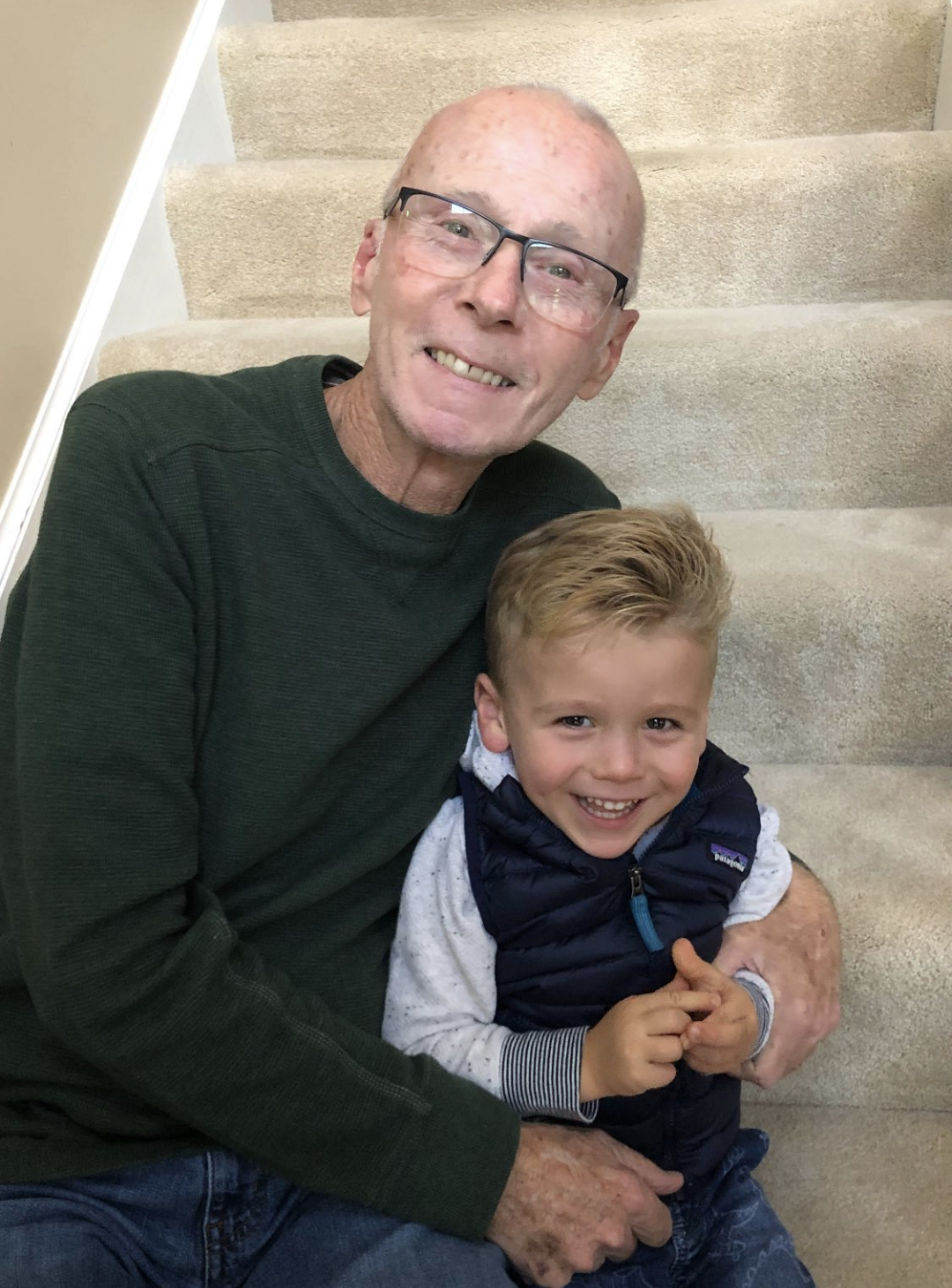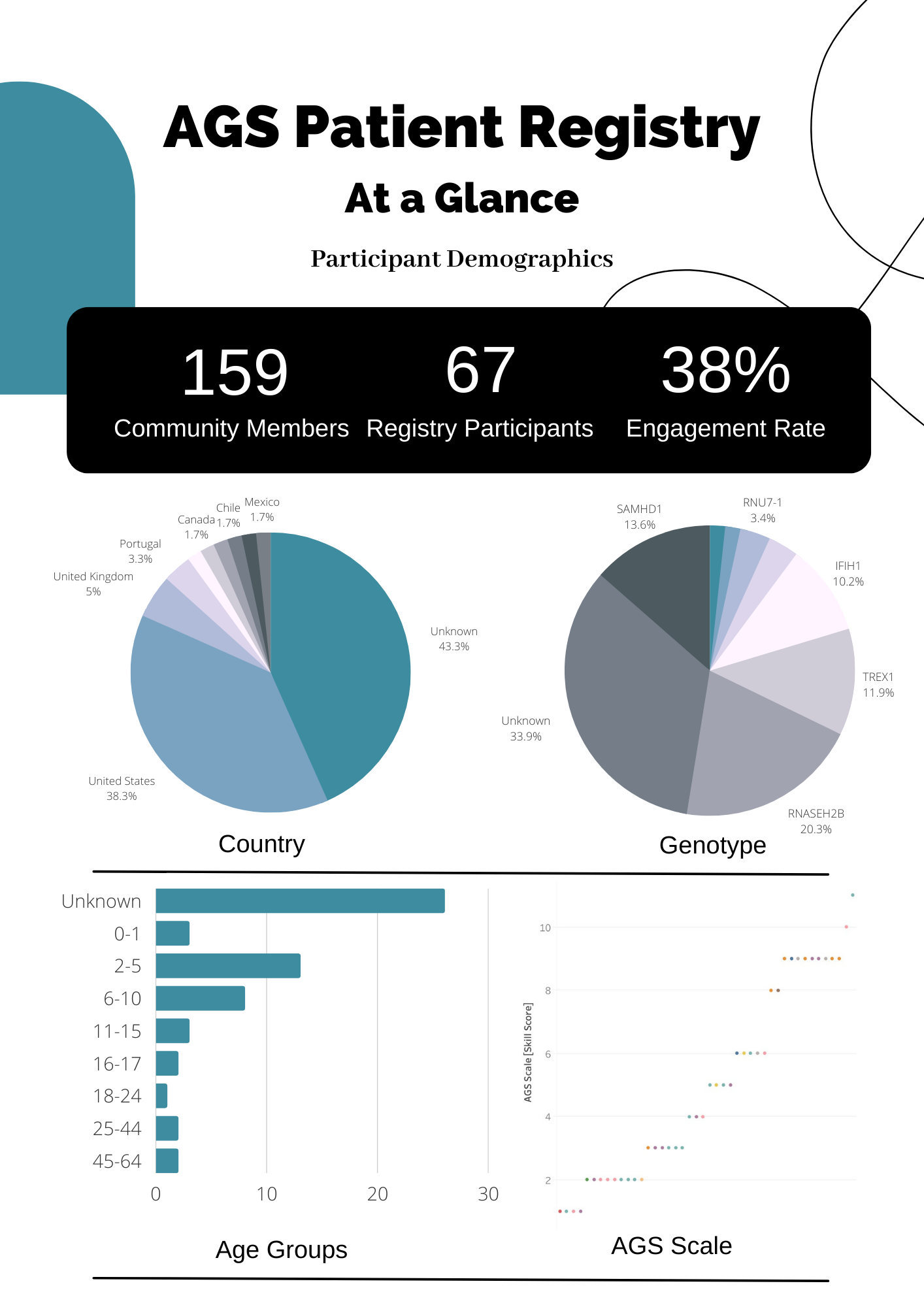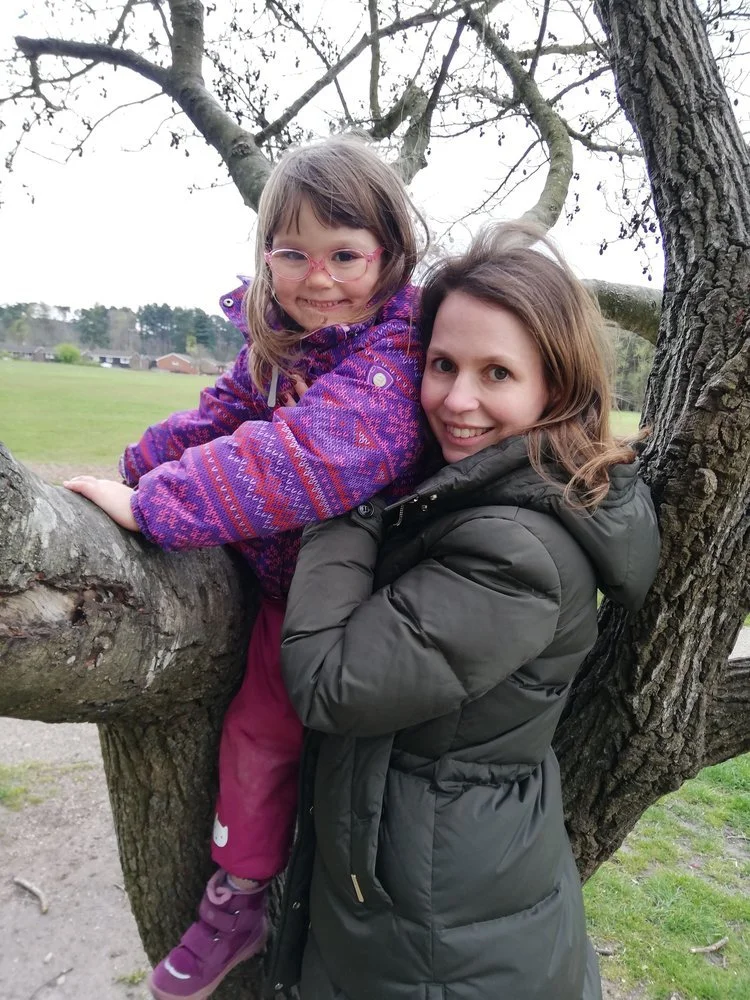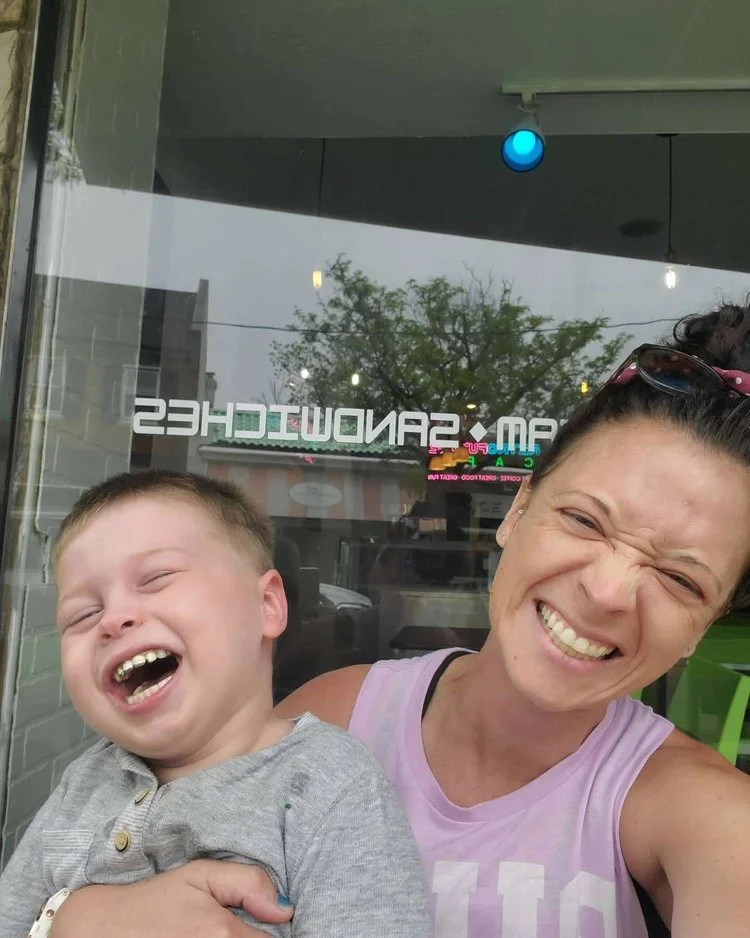PO Box 2821
Crested Butte, CO 81224
+1 917 960 8733
https://agsaa.org/
info@agsaa.org
Esteemed Provider,
The Aicardi Goutieres Syndrome Advocacy Association (AGSAA) would like to ensure that you’re aware of recent developments in the treatment of Aicardi-Goutieres Syndrome (AGS). We understand that familiarity with our rare disorder comes at a premium, and it’s likely that you will benefit from resources and references we can provide to improve the care of your patient. Most importantly, we’ve accumulated an explanation, testimonials, and references to aid parents and physicians in treating AGS with JAK inhibitors. Many children and adults affected by AGS have had their disease managed effectively by treatment with baricitinib, ruxolitinib or (to a lesser extent) tofacitinib, all of which are immune modulating agents. These medicines are approved in most countries and have been used safely with AGS patients around the world to reduce overt symptoms, improve sleep and comfort, and maintain a neurologic stability that has allowed most to achieve new developmental milestones. JAK inhibitors remain our only safe and proven therapeutic, and our physician partners have published protocols for dosing and safety monitoring.
JAK Inhibition (with references to treatment protocol) - https://agsaa.org/jak-inhibition
EULAR/ACR Recommendations - https://agsaa.org/clinical-care-recommendations
Additionally, we feel it’s important to make you aware of a few key points.
AGS is a treatable disorder that should not be considered hopeless nor primarily progressive. It is a relapsing/remitting disease that can be successfully treated and managed. Many treated with JAK inhibitors achieve astonishing outcomes.
AGS is an immune disorder, exacerbated by immune stimulation and associated with hematologic dysfunction.
AGS is a heterogeneous disorder. For reasons unknown, AGS may present with a high degree of variability, including within the same family. Secondary genetic factors and/or environmental factors may play a large role in determining the age of onset, degree of disability, and phenotype. AGS is difficult to define and encompasses much.
AGS is a multisystem inflammatory disorder. Many systems and organs may be affected by chronic inflammation and therefore may also be treated with JAK inhibitors. Patients should be regularly monitored with a comprehensive metabolic panel, and disturbances in many systems (e.g. renal, hepatic, gastrointestinal) should be investigated in the context of AGS as an autoinflammatory disorder.
Thank you for seeking the best care and future for your patient. Our organization works closely with leading AGS researchers and physicians and will continue to provide updated information and guidance. Help us help you rescue the potential of all patients living with AGS by staying in contact and proactively seeking consultation.
Sincerely,
Aicardi Goutieres Syndrome Advocacy Association
info@agsaa.org
